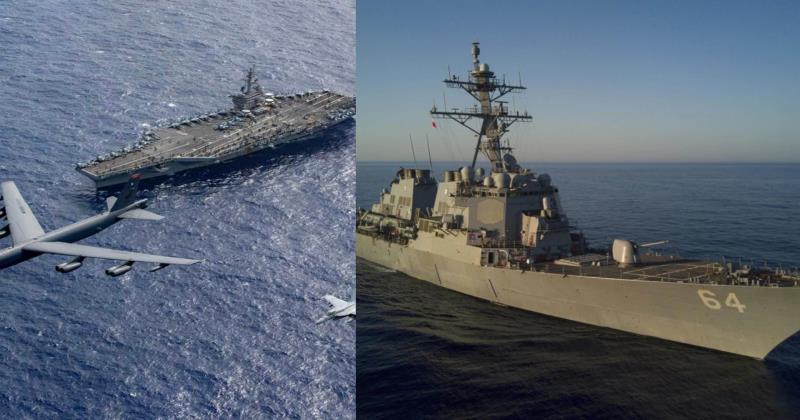The United States has increased its Middle East deployment, with Secretary of Defense Lloyd Austin ordering a guided missile submarine and speeding up the arrival of the USS Abraham Lincoln aircraft carrier strike group. This decision followed a phone call between Austin and Israeli Minister of Defense Yoav Galant, as tensions rise after the killings of senior members of Hamas and Hezbollah, both backed by Iran.
Austin reaffirmed the US commitment to Israel’s defense, emphasizing the strengthening of US military presence and capabilities in the Middle East due to the escalating situation. The Pentagon stated that the Middle East deployment is a response to the growing regional tensions.
The USS Georgia, a nuclear-powered submarine, was already positioned in the Mediterranean Sea as of July, but it’s unusual for the US to publicly announce such a deployment. The Abraham Lincoln, previously in the Asia Pacific, had been ordered to the Middle East to replace the USS Theodore Roosevelt, which is set to return home. Last week, Austin indicated that the carrier would arrive in the region by the end of the month. The carrier includes F-35 and F/A-18 fighter jets, bolstering the Middle East deployment.
The US military had already announced plans to send additional fighter aircraft and warships to the region, aiming to reinforce Israel’s defenses against potential threats from Iran.
The recent Middle East deployment follows the assassination of Ismail Haniyeh, the political leader of Hamas, in Tehran on July 31. Iran has blamed Israel for the assassination and vowed to retaliate, though Israel has not claimed responsibility. In the same week, Fuad Shukr, a senior Hezbollah military commander, was killed in an Israeli attack on Beirut, sparking fears that the Gaza conflict could escalate into a wider regional war.
The Pentagon’s announcement of the Middle East deployment came shortly after an Israeli attack on a school-turned-shelter in Gaza killed at least 90 people and injured nearly 50, according to Palestinian health authorities.
Austin and Gallant also discussed efforts to minimize civilian harm, work toward a ceasefire, and secure the release of hostages held in Gaza. Nearly 40,000 people have died since Israel launched its war on Gaza last October following a surprise attack by Hamas that killed 1,139 people and led to the capture of over 200 hostages.
Efforts to negotiate a ceasefire have intensified, with Hamas calling on the US, Qatar, and Egypt to implement a ceasefire proposal presented by US President Joe Biden in May, rather than engaging in further rounds of negotiations.


